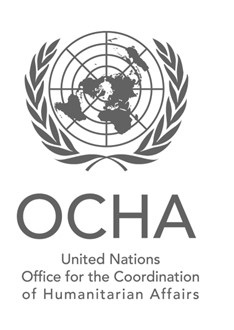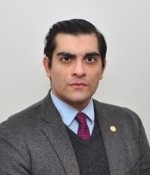The ”How to” Approach of the United Nations’ OCHA
FEATURED PAPER
By Prof. Dr. M. F. HARAKE
ESLI International
Graduate School of Management & Engineering
France
Abstract
The aim of this paper is to outline some of the details of the United Nations’ entities project management dynamic while taking into consideration the context of their work as well as the conditions surrounding them. The idea is to find out how their projects can succeed in their unstable environments, risky supply chains, and the difficulties surrounding the coordination of multistakeholder projects. In this paper we will be presenting the implementation process of humanitarian projects while outlining the ‘’How to’’ approach of the United Nations Office for the Coordination of Humanitarian Affairs (OCHA). The paper proposes a descriptive approach to explaining the implementation process of the entity’s projects.
Key Words: United Nations; Humanitarian Projects; Project Management; OCHA; Project Delivery.
1.Introduction
1.1 Research Focus – The United Nations’ OCHA
The United Nations Office for the Coordination of Humanitarian Affairs (OCHA) oversees emergency responses to save lives and protect people during humanitarian disasters (OCHA, 2023). The OCHA assists humanitarian groups in appropriately and effectively meeting the needs of individuals in crisis, understanding, and analyzing their needs, and mobilizing international help. This is accomplished by deploying the necessary instruments and services to assist humanitarian groups in ensuring that no one affected by a humanitarian disaster is left behind (Gettliffe, 2021).

Figure 01. OCHA Logo
Based on their mission, the OCHA contributes to a ”principled” humanitarian response by performing their global core functions (OCHA, 1998; Stensland & Sending, 2011; Foran et al., 2012; Gettliffe, 2021; OCHA, 2023):
- Coordination: The entity coordinates humanitarian activity to enhance reach, improve prioritizing, and decrease duplication. This ensures that relief and protection reach those in need.
- Advocacy: OCHA’s public and private advocacy aims to promote respect for international humanitarian law (IHL), reach out to disadvantaged groups, convey emergencies globally, and assist people in obtaining humanitarian aid.
- Policy: The agency frequently creates and publishes humanitarian policy to assist define humanitarian agendas. The goal is to increase the responsiveness of the involved governments, NGOs, and the commercial sector, as well as As well as the efficacy of humanitarian efforts.
- Information Management: The OCHA provides information management services for the humanitarian community. The goal is to respond quickly by gathering, sharing, and utilizing data and information, which will support coordination, decision-making, and advocacy efforts.
- Humanitarian Financing: The office uses various financing instruments to meet humanitarian needs, increase cooperation, and align with development funds.
More…
To read entire paper, click here
How to cite this paper: Harake, M. F. (2024). The Implementation of Humanitarian Projects: The ”How to” Approach of the United Nations’ OCHA. PM World Journal, Vol. XIII, Issue VI, June. Available online at https://pmworldlibrary.net/wp-content/uploads/2024/06/pmwj142-Jun2024-Harake-The-Implementation-of-Humanitarian-Projects-A-How-to-Approach.pdf
About the Author

Prof. Dr. M. F. HARAKE
Poitiers, France
![]()
Prof. Dr. M. F. HARAKE is a management Professor based in France. He is currently the Director of International Academic Affairs of GIP CEI (a French Higher Education and Research Institution). He is also the Doctorate in Business Administration (DBA) program manager of ESLI International – Graduate School of Management & Engineering (Paris – France) and the scientific director of the MBA DELIVERWEB at ALTERNIS Business School (Bordeaux – France). He previously served as a visiting professor at ESCE International Business School (Paris – France), Paris School of Business (Paris – France), Ascencia Business School (Paris – France), ESPRIT Business School (Tunis – Tunisia), GBSB Global Business School (Barcelona – Spain), etc.
Dr. M.F. HARAKE is a research fellow and former board member of the CEREGE Research Laboratory (University of Poitiers – France), and a visiting research fellow at CABMR Research Center (Paris – France). He is also an Honorary Academic Advisor and Research Scholar at the Project Management World Library (Austin / Texas – USA). He previously served as the Director of the CREFEGE Research Center (Paris – France). His research interests include Post-Conflict Public Management, Crisis and Urgent Operations Management, Humanitarian Logistics, and Project Management in Unstable Environments.
He can be contacted at mharake@gip-cei.com
To view other works by Prof. Harake, visit his author showcase in the PM World Library at https://pmworldlibrary.net/authors/mohamad-fadl-harake/









